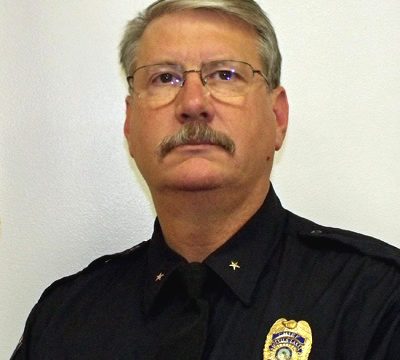Devils Lake Police Chief Responds To Controversy Over Ban On Booze Sales To "Habitual Drunkards"

I sat in for Scott Hennen on his radio show today, and we wanted to talk with Devils Lake Police Chief Keith Schroeder about his city’s ban on selling alcohol to “habitual drunkards.” Unfortunately, Chief Schroder didn’t have time for an interview, but he did send along a list of facts about what his city is doing.
1. There are several laws in NDCC and administrative rules that refer to “habitual drunkards”. The law that states that no person may provide alcohol to a habitual drunkard (NDCC 5-01-09) has been in existence for years. This is not a new law.
2. In North Dakota statutes there has only been one reference to a definition of what a “habitual drunkard” is, and that definition is in the traffic code regarding who the director may deny issuance of a driver’s license to and refers to a habitual drunkard as a person who has been convicted of DUI or the administrative laws related to DUI 3 times in a 5 year period.
3. For the purposes of enforcing NDCC 5-01-09 and equivalent ordinances, the definition under the traffic section was inadequate. The Devils Lake city commission passed an ordinance defining “habitual drunkard” for the purpose of enforcing this law and equivalent ordinances. That definition is based on language from US Supreme Court decisions and US Courts of Appeal decisions. The ordinance also implements a data driven approach to identify those persons who meet that definition. The numerical threshold of offenses is five in a one year period which is much more liberal than the state’s 3 in 5 year example for driving. The commission also enacted an ordinance that directs the police department to establish a list of those persons who meet the definition based on this data driven approach. That list is compiled and provided to the liquor license holders so that they may comply with the law.
4. The first data run to establish this list was done in October 2012. During that data run the query of the bookings at the Lake Region Correctional Center included those persons who were booked in for detox by any agency using the jail for detox purposes. Many of these people were brought in by the Fort Totten Police for a Tribal offense of Public Intoxication. The original list was 21 names. Due to feedback from the Spirit Lake Nation we have modified our query of the system to ONLY include those persons who were booked for detox by the Devils Lake Police Department. There are currently 7 names on the list.
5. In 2012 DLPD utilized the jail for detox 299 times. The seven people on the list are responsible for over 100 of those detox placements.
6. We recognize the fact that attempting to limit access of alcohol to these people will not in itself solve this social problem, but it is a tool that has not been used in the past due to a lack of an adequate definition. Now that a definition is in place, this tool can be used and will hopefully make a positive impact on the welfare of these people and the community as a whole.
Perhaps the most interesting point the chief makes is that the ban on selling booze to habitual drunks is not new, nor is it limited to Devils Lake. It’s been on the books for quite some time, but doesn’t seem to be enforced because the term “habitual drunkard” isn’t well defined in state law. What Devils Lake did is give it a specific definition. A “habitual drunkard” in Devils Lake is someone who local law enforcement has had to detain five times or more in the past year for alcohol-related crimes or for detoxification.
That’s actually a pretty liberal definition. I think most reasonable people would label a person like that a “habitual drunkard.”
What I’m worried about, however, is whether or not this will work. I don’t think it will, and what worries me is that sometimes our approach to policies like this is to double down when they don’t work. I think we’re guilty of that with DUI policy in the state. Governor Jack Dalrymple, in lending his support to reforms of DUI laws, pointed out that arrests for DUI’s in the state have gone up by 53% over the last decade. But during that same timeline, the number of alcohol-related traffic deaths and crashes has gone up as well.
Meaning the arrests don’t really seem to be making roads safer. Yet, the only response most in the public seem to want to DUI policy is more cops, more arrests and tougher penalties.
In Devils Lake, I’m concerned that if these habitual drunks continue to cause problems, that the city will seek to expand this policy in ways that may infringe upon the rights of law-abiding citizens, not the least of which is bar owners and liquor retailers.







